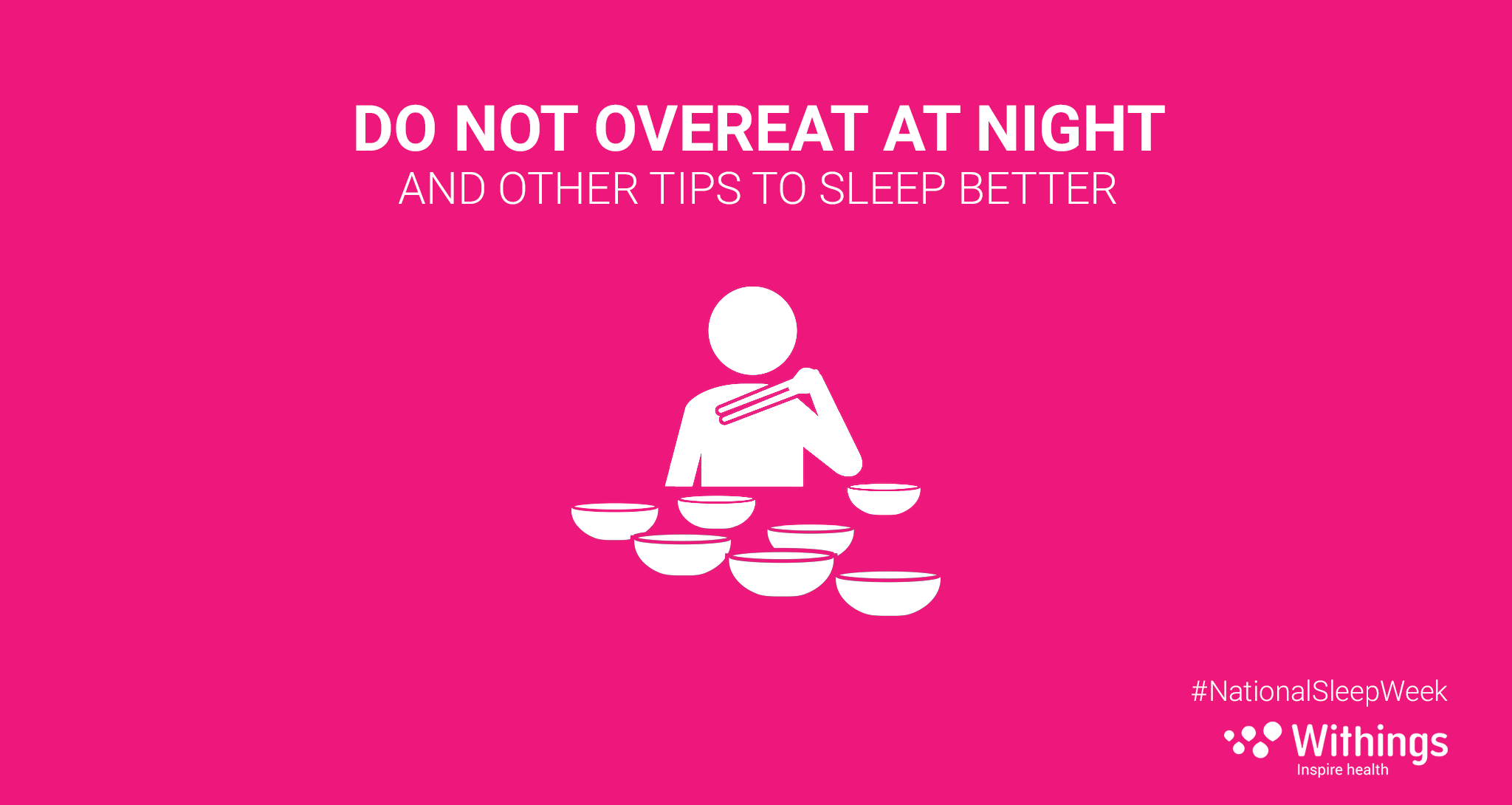
We’ve analyzed the relationship between activity and sleep and environment and sleep, so now it’s time to examine the connections between weight and sleep. When we eat, what we eat, and how we eat can all have an immense impact on overall sleep quality.
Generally speaking, it is best not to eat a huge dinner. If you do plan on eating a large dinner, it is important to make sure that you leave yourself enough time to adequately digest the meal. Eating a large meal an hour before bed can lead to a sleepless night of tossing and turning. In addition to eating a small dinner, it is best to limit after-dinner snacking. In most cases, after dinner snacks are consumed more out of boredom than actual hunger. In these cases, we often crave unhealthy treats like ice cream or chips.
If you must eat a snack before bed, make sure it is a “safe for sleep snack.” Have you ever had a turkey sandwich at lunch and found that you were immediately reaching for a second cup of coffee? This drowsiness can be attributed to the presence of tryptophan. While it may cause you to fall into an afternoon slump, tryptophan is great for helping you sleep at night. Foods packed with whole grains, calcium and magnesium are also known to induce melatonin and serotonin production. Melatonin helps you to fall asleep while serotonin helps you to feel more relaxed and generally happier. SOURCE
In addition to the effects of nutrition on sleep, your weight can have a negative impact on your sleep quality. People who are overweight are more likely to develop a sleep condition called sleep apnea. Sleep apnea is a sleep related breathing condition in which the upper passage of your airway is closed off making it impossible to breathe. The only way to start breathing again when this happens is to wake up. This leads to excessive snoring, and severe disruptions to sleep cycles. SOURCE
As the foods we eat can have an impact on weight and sleep quality, the inverse is true as well. Not getting enough sleep can lead to weight gain. In fact, people who regularly sleep for less than 5 hours a night have a higher chance of being overweight than those who sleep for 7-9 hours. Naturally, a lack of sleep can reduce your level of motivation making it more difficult to get to the gym, that yoga class, or even get off the couch. But sleep deprivation has a greater effect than an added sense of lethargy. When you are sleep deprived, your body produces more ghrelin, the hormone responsible for stimulating hunger in your body. Conversely, your body produces less of the hormone leptin, which is responsible for stimulating satiety. SOURCE
To fight the vicious cycle of weight gain and sleepless nights, make sure to keep a balanced diet and clock eight hours a night.


